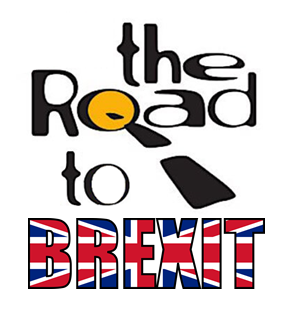The Road to Brexit
The UK joined the European Economic Community (EEC) in 1973, with membership confirmed by a referendum on 5 June 1975. The electorate expressed substantial support for EEC membership, with 67% in favour on a national turnout of 64%
In the 1970’s and 1980’s, withdrawal from the EU was advocated mainly by the Labour Party and then, from the 1990’s onwards, by the UK Independence Party (UKIP) and an increasing number of Eurosceptic Conservative MP’s.
In January 2013, Prime Minister David Cameron announced that a Conservative government would hold an in-out referendum on EU membership, if elected in 2015. The Conservatives won the 2015 election with a majority. This led to another referendum, which was held on 23 June 2016, where 51.9% of those participating voted to leave the European Union (formerly known as the EEC), on a national turnout of 72.2%. On 29 March 2017, the UK government invoked Article 50 of the treaty of the European Union, meaning that once the 2 year period had elapsed, the UK would leave the EU on 29 March 2019. In reality, yesterday’s transition deal agreed by David Davis (Secretary of State for Exiting the EU) and Michel Barnier (the EU’s Chief Negotiator for the UK exiting the EU) means that Britain is on course to fully leave the EU on 31 December 2020.
As unnecessary as a transition period may seem and however aggrieved some Leave voters legitimately may feel, given that the EU will exercise control over our fishing waters along with continued free movement rules until 31 December 2020, nonetheless it seems that progress is being made towards filling the democratic will of the British people to leave the EU.
Post-Brexit Trade Deals
One of the positives to have come out of the transition agreement is that on 29 March 2019, we will be in a position to negotiate our own trade deals with other countries, which we have previously been unable to do, as members of the EU’s Customs Union.
Given that we don’t have free trade agreements with some of the largest global economies, such as the USA, China, Japan or India, we are positioning ourselves to do business with the world’s largest economies and create a greater Britain with a stronger economy.
For instance, the UK exports more goods to the US than to any other country. The ‘special relationship,’ which Thatcher and Reagan spoke of many years ago, remains today. It is likely that the UK should be able to conclude a good trade deal with the US fairly quickly.
An intriguing thought, suggested by Roger Bootle in his Book, Making a Success of Brexit, relates to Britain’s being part of a remarkable group of nations called the Commonwealth, stretching across 54 independent nations. Even though the Commonwealth has faded in the British national consciousness, the relative size of its collective GDP has been rising rapidly, including the Asian countries and the African economy, which some forecast will soon begin to head in the right direction. Even though the Commonwealth is not an economic blog like the EU, there is a set of connections, based upon the English language and legal structures based upon the British model, which provides great opportunities for post-Brexit trade deals. (Roger Bootle, Making a Success of Brexit, P245-246)
For the first time in four decades, we will have the opportunity to seek out our own trade deals with the world’s largest and upcoming economies to benefit the whole of Britain, both today and for future generations.


While we may have turned our backs on the EU, surely now is the time for our nation, people and politicians, to turn back to God and His Word. He is where our real hope is found, not in our leaders, not in our economy, not in the condition of our nation today, or any other day. Our hope comes from the Lord, Maker of heaven and earth. When we turn to Him, we can be assured that blessing will follow: ‘Blessed is the nation whose God is the Lord…and whose hope the Lord is.’ Our future then will be as bright as His promises!